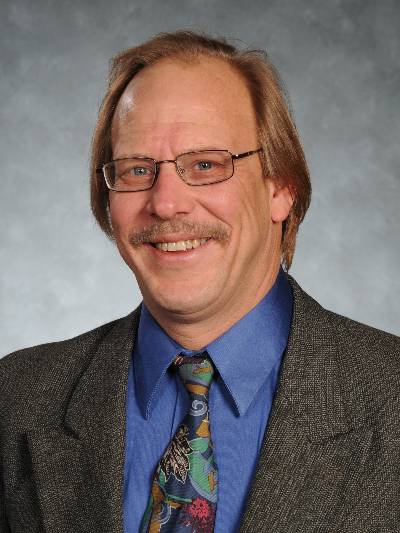Biomed Professor Wins Patent for Heart Drug
November 17, 2016
Dr. Lindon Young, professor, bio-medical sciences, was recently awarded a patent for
a solution he invented
which could stop reperfusion injury after a heart attack.
According to the World Health Organization, about 30 percent of deaths worldwide stem
from coronary heart disease, the effects of which can be attributed to reperfusion
injury.
Reperfusion occurs when blood flow is restored to tissues after a heart attack. There
is currently no therapeutic available to lessen the damage caused by reperfusion injuries,
which is caused by a buildup of reactive oxygen species (ROS) in the blood.
ROS are molecules of oxygen that are unstable, and react to other molecules in the
body. In low levels, they can be helpful in the cell signaling process, but a buildup
could lead to what is essentially a more efficient form of apoptosis—a process the
body uses to prune unneeded or unwanted cells. When apoptosis works too well, it can
kill too many cells and inflict tissue damage.
Lindon Young, PhD, professor, bio-medical sciences, Philadelphia College of Osteopathic Medicine, has been studying the regulation of mechanisms related to ROS buildup, to determine
whether inhibiting ROS would lessen the damage and ultimately create a therapeutic
to treat those injuries.
He recently was awarded a patent for a solution he invented that could potentially
stop this damage, by injecting the solution—comprised of the peptide PKC epsilon inhibitor—into
the affected area to stave off tissue damage right at the site.
“This tool has shown remarkable restoration of heart function in our preclinical models,”
explained Dr. Young, adding that the ultimate goal is to present his treatment to
the Federal Drug Administration (FDA) for approval to be sold commercially.
“There’s nothing that’s approved right now that can stave off injury and improve function
after a heart attack,” he said. “There are a lot of trials, but everything has failed
up until this point.”
One reason could be that nothing yet has been effective in stopping the buildup of
ROS, which occurs when enzymes in the body that normally monitor oxygen in cells get
too overwhelmed when blood flow is restored. Dr. Young compares it to a leak in the
basement: “Water’s gushing in under the door, and the mops you’re trying to use to
soak up all that water can’t do it. We’re trying to stop the water from getting in
the first place, like putting a dyke outside the door.”
Dr. Young says that obtaining a patent is just one step on the road to gaining FDA
approval, but an important one nonetheless. “It’s essential. You simply can’t get
FDA approval without a patent.”
He and his team will continue to study the metabolic effects of the solution, as well
as its toxicology, to present to the FDA as part of the approval process. “We’ll study
things like how long it sits in the blood, its volume of distribution, and determine
the safest levels of dosing,” he said, adding that existing literature on the peptide
has bolstered his confidence in its safety.
“Reperfusion injury as a whole has been very difficult problem to treat—this has been
an enigma for people,” he said. “There is a really big need here.”
You May Also Like:
About Philadelphia College of Osteopathic Medicine
Established in 1899, Philadelphia College of Osteopathic Medicine (PCOM) has trained
thousands of highly competent, caring physicians, health practitioners and behavioral
scientists who practice a “whole person” approach to care—treating people, not just
symptoms. PCOM, a private, not-for-profit accredited institution of higher education,
operates three campuses (PCOM, PCOM Georgia and PCOM South Georgia) and offers doctoral degrees in clinical psychology, educational psychology, osteopathic
medicine, pharmacy, physical therapy, and school psychology. The college also offers
graduate degrees in applied behavior analysis, applied positive psychology, biomedical
sciences, forensic medicine, medical laboratory science, mental health counseling,
physician assistant studies, and school psychology. PCOM students learn the importance
of health promotion, research, education and service to the community. Through its
community-based Healthcare Centers, PCOM provides care to medically underserved populations.
For more information, visit pcom.edu or call 215-871-6100.
Contact Us
For general media inquiries, please contact the Office of Marketing and Communications
at 215-871-6300 or communications@pcom.edu. Visit our media relations page to view contact information for public relations personnel.
Connect with PCOM


